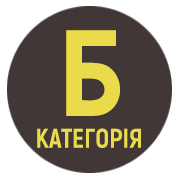NARRATOLOGICAL AND COGNITIVE FOCUS OF THE AUTHOR’S POSITION IN PSYCHOBIOGRAPHICAL NOVELS BY STEPAN PROTSIUK
DOI:
https://doi.org/10.32782/folium/2024.4.25Keywords:
psychobiography, novel, author, narrator, conceptual metaphorAbstract
The article deals with the narratological and cognitive focus of the author’s position in psychobiographical novels by Stepan Protsiuk. The contemporary researches on the cognitive functions of narrative in philosophy and literary studies have been analyzed. The process of narration of a fictional biographical work has been recognized as a cognitive act, in particular in connection with the peculiarities of the author’s perception of the writer’s image and the coverage of key modes of his life story to construct the corresponding image in the mind of the recipient. The types of narrators used by Stepan Protsiuk in his psychobiographical novels have been analyzed. It has been found that the author chooses the omniscient type of narrator in a variable – extradiegetic and intradiegetic – position. The influence of the omniscient type of narrator on the reader’s perception of the writer-hero has been analyzed. It has been proved that the blurred boundary between the categories of character and narrator in psychobiographies by Stepan Protsiuk creates a deep internal perspective for the cognitive analysis of the protagonist’s image. The cognitive possibilities, functions and features of the conceptual metaphor in Stepan Protsiuk’s novels have been researched. A common anthropomorphic image of the conceptual metaphor used by the author at the level of the leitmotif structure of psychobiographies has been determined. The plot development of novels by Stepan Protsiuk has been analyzed through the prism of the functions of conceptual metaphor on various structural elements of their composition. It has been proved that the conceptual metaphor is the basis of the character’s cognitive map-path in psychobiographical novels by Stepan Protsiuk, and its influence on the central image of the writer-hero and on the reader’s reaction has been determined. The existence of a deep intellectual and emotional connection between the narrator and the recipient has been proved. The diagrams of narrative and cognitive focus of the author’s position in psychobiographical novels by Stepan Protsiuk are modeled, and its key aspects have been identified, including: a deep inner perspective, presentation of character development, use of symbolism and imagery aimed at revealing the mental states and internal mechanisms of the writer-heroes.
References
Баррі П. Вступ до теорії : літературознавство і культурологія. Київ : Смолоскип, 2008. 339 с.
Беспалов В. Філософія процесу пізнання Арістотеля. Вісник Львівського університету. Серія філософсько-політологічні студії. 2020. Випуск 32. С. 7–11. URL: http://surl.li/sbllo (дата звернення: 24.03.2024).
Бистров Я. Англомовний біографічний наратив у вимірах когнітивної лінгвістики і синергетики : монографія. Київ ; Івано-Франківськ : Видавець Кушнір Г.М., 2016. 320 с.
Бовсунівська Т. Когнітивна жанрологія та поетика : монографія. Київ : видавничо-поліграфічний центр «Київський університет», 2010. 180 с.
Драненко Г. Автор, наратор і протагоніст як агенти й суб’єкти перетину та перестанови (само)ідентичностей у сучасному біографічному дискурсі. Питання літературознавства. 2013. № 88. С. 89–105. URL: http://surl.li/sbllq (дата звернення: 20.03.2024).
Капленко О. Наратив як модель світу : структурна побудова і проекція в художній текст. Слово і час. 2003. № 11. С. 10–16.
Моклиця М. Жанротвірні інтенції біографії. Studia methodologica. 2015. № 40. С. 71–76.
URL : http://surl.li/sbllu (дата звернення: 22.02.2024).
Папуша І. Наративні моделі українського реалізму. URL: http://surl.li/sbllx (дата звернення: 21.03.2024).
Пастух Б. Одвічні суперечності серця : проза Степана Процюка. Брустури : Дискурсус, 2016. 94 с.
Процюк С. Маски опадають повільно : роман про Володимира Винниченка. Київ : ВЦ «Академія», 2021. 304 с.
Процюк С. Місяцю, місяцю : роман про Григора Тютюнника. Львів : видавництво Юлії Сливки, 2022. 198 с.
Процюк С. Троянда ритуального болю : роман про Василя Стефаника. Київ : ВЦ «Академія», 2021.184 с.
Процюк С. Чорне яблуко : роман про Архипа Тесленка. Київ : ВЦ «Академія», 2021. 192 с.
Римар Н. Функції наратора як головної інстанції оповіді в художньому тексті. Studia methodologica. 2014. № 37. С. 204–211. URL: http://surl.li/sbllz (дата звернення: 22.03.2024).
Рухленко Л. Жанрово-стильові особливості біографічних романів Степана Процюка. Суми : Сумський державний педагогічний університет імені А. С. Макаренка, 2021. 102 с.
Скорина Л. Специфіка використання франкового слова в повісті-есе Романа Горака «Твого ім'я не вимовлю ніколи» (інтертекстуальність як маркер визначення жанрового коду твору). Літературознавство. Фольклористика. Культурологія. 2012. Вип. 11–12. С. 98–106. URL: http://surl.li/sblmd (дата звернення: 22.03.2024).
Соловей О. Орґазм і Відчай : випадок Степана Процюка. Вінниця : «Простір Літератури», 2017. 133 с.
Стрільчик Б. Оніричний дискурс сучасної української прози (на матеріалі романів Степана Процюка, Володимира Єшкілєва та Андрія Жураківського) : дис. ... канд. філол. наук: 10.01.01 / ДВНЗ «Прикарпатський національний університет імені Василя Стефаника». Івано-Франківськ, 2019. 196 с.
Ткачук М. Наративні моделі українського письменства. Тернопіль : ТНПУ, 2007. 474 с.
Хамедова О. Наратологічний аналіз роману Барбари Редінґ «Безумці». Науковий вісник Східноєвропейського національного університету імені Лесі Українки. Філологічні науки. Літературознавство. 2015. №8. С. 133–137. URL: http://surl.li/sblmf (дата звернення: 22.02.2024).
Черниш А. Біографічні романи С. Процюка в інтертекстуальному вимірі. Прикарпатський вісник НТШ. Слово. 2019. № 3. С. 309‒316.
Carroll N. On the Narrative Connection. Beyond Aesthetics Philosophical Essays. Cambridge : Cambridge University Press, 2001. P. 118–133. DOI: https://doi.org/10.1017/CBO9780511605970.009 (last accessed: 21.03.2024).
Lakoff G., Johnson M. Metaphors We Live By. Chicago : University of Chicago Press, 2003. 242 p. URL: http://surl.li/sblln (last accessed: 21.03.2024).
Mink L. Narrative Form as a Cognitive Instrument. Historical Understanding. New York : Cornell University Press, 1987. P. 182–203. URL: http://surl.li/sblmk (last accessed : 22.03.2024).
Stueber K. Agency and the Objectivity of Historical Narratives. The Philosophy of History : A Re-Examination / ed. W. Sweet. Aldershot : Ashgate, 2004. P. 197–222. URL: http://surl.li/sblml (last accessed : 23.03.2024).
Turner M. Death Is the Mother of Beauty: Mind, Metaphor, Criticism. Chicago : The University of Chicago Press, 1987. 224 p. URL: http://surl.li/sblmo (last accessed : 23.03.2024).











